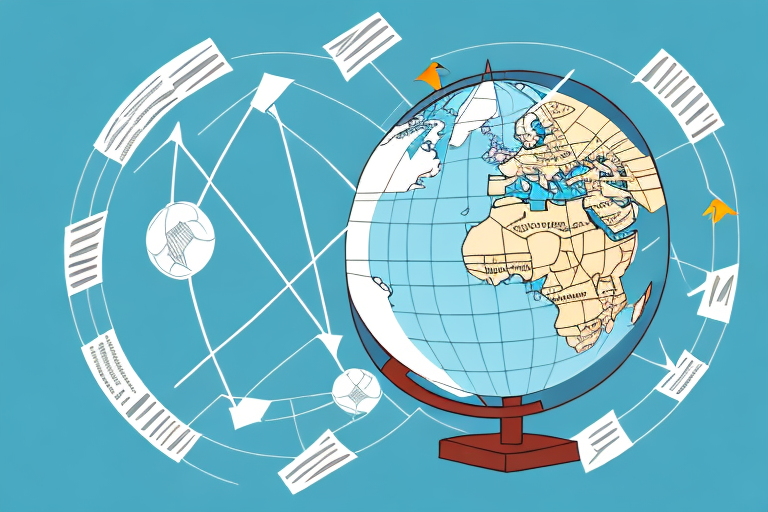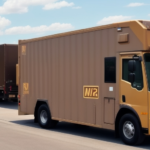Understanding UPS Shipping Rates to Locations Outside the United States
For business owners and individuals who regularly send packages internationally, finding cost-effective and reliable shipping options is crucial. UPS is a leading carrier for international deliveries, thanks to its extensive global network and a variety of shipping solutions tailored to diverse needs. However, several factors can influence the rates you pay for UPS shipping, particularly for international destinations. In this article, we will delve into the key factors affecting UPS shipping rates for international deliveries, provide tips for reducing costs, explain how to calculate rates, and cover other essential details you need to know for your international shipping requirements.
Key Factors Impacting UPS Shipping Rates for International Deliveries
When shipping a package outside the United States, multiple elements influence the final cost. Understanding these factors can help you make informed decisions and optimize your shipping expenses. Here are the primary factors that affect UPS international shipping rates:
- Destination Country: Shipping fees vary based on the destination country's distance, transportation infrastructure, and customs regulations.
- Package Weight and Dimensions: UPS uses dimensional weight pricing, comparing the package's dimensional weight to its actual weight and charging the higher value.
- Shipping Service Level: UPS offers various service levels with different transit times and delivery guarantees, each with its own cost structure.
- Declared Value: Higher-valued shipments incur increased insurance costs to cover potential losses or damages during transit.
- Additional Services: Optional services such as signature requirements, Saturday delivery, or package pickup can add to the overall cost.
Additionally, the type of item being shipped can impact costs. Items classified as hazardous materials or perishable goods may require special handling or packaging, leading to higher shipping expenses.
Seasonal fluctuations also affect shipping rates. During peak holiday seasons, increased demand and limited transportation options can result in higher shipping costs.
The Role of Customs Clearance in International Shipping Costs
Customs clearance is an essential process for all international shipments. It involves verifying, assessing, and collecting the necessary duties, taxes, and fees based on the shipment's contents, value, and destination country's regulations. Delays in customs clearance can increase total shipping costs due to storage fees or expedited processing fees. UPS provides assistance with customs documentation and compliance to streamline the clearance process and avoid unexpected costs.
Calculating UPS Shipping Rates for International Deliveries
Accurately calculating UPS shipping rates for international packages is straightforward using UPS's online tools. The most reliable method is the UPS Rate and Service Guide. To calculate rates, you will need:
- Package weight and dimensions
- Destination country code
- Customs information, including item description and value
Inputting this information into the UPS shipping calculator will provide you with rates across various UPS services, allowing you to compare options based on cost and delivery speed.
Tips for Reducing UPS Shipping Costs to International Locations
While UPS shipping rates can vary, implementing the following strategies can help lower your international shipping expenses:
- Select a Lower Service Tier: Opt for standard shipping services if expedited delivery is not required.
- Minimize Package Weight and Size: Reducing the size and weight of your package can significantly decrease shipping costs due to dimensional weight pricing.
- Obtain Shipping Quotes: Use UPS's shipping calculator to get accurate quotes before sending packages.
- Consolidate Shipments: Combining multiple shipments into one can lead to cost savings by reducing the number of packages.
Exploring Different UPS International Shipping Services
UPS offers a variety of international shipping options to cater to different shipment needs. Here are some of the most commonly used UPS international services:
- UPS Worldwide Express: A premium service guaranteeing delivery in one to three business days to over 210 countries and territories, including customs clearance and door-to-door service.
- UPS Worldwide Express Saver: Slightly more affordable than Worldwide Express, this service ensures delivery within one to three business days to more than 220 countries and territories.
- UPS Worldwide Expedited: Ideal for less urgent shipments, offering delivery within two to five business days.
- UPS Standard: Provides reliable ground delivery between Canada and the United States.
- UPS Worldwide Economy: The most cost-effective option for non-urgent deliveries to over 220 countries and territories.
- UPS Worldwide Freight: Suitable for heavier or specialized freight shipments requiring additional handling.
The Importance of Proper Packaging for International Shipments
Proper packaging is vital for international deliveries due to the multiple handling stages and extended transit times involved. Well-packaged items are less likely to be damaged, reducing the risk of additional costs and ensuring the safe arrival of your goods. Effective packaging should prevent movement within the package and provide adequate protection against environmental factors during transit.
Tracking Your UPS Shipment to International Destinations
UPS offers robust tracking tools and mobile applications that make monitoring your international shipments simple. By entering your package's tracking number or UPS InfoNotice number on the UPS tracking page, you can receive real-time updates on your shipment's status and estimated delivery time.
Common Issues Affecting Delivery Times for UPS International Shipments
Several factors can impact the delivery times of international shipments with UPS. Key issues include:
- Weather and Climate: Adverse weather conditions like storms and floods can cause delays in various regions.
- Customs Clearance: As previously mentioned, delays in customs can extend delivery times.
- Missed Delivery Attempts: If the recipient is unavailable, delivery attempts may be rescheduled, delaying the shipment.
- Incorrect or Incomplete Addresses: Inaccurate shipping information can result in delays or returns.
Benefits of Choosing UPS for International Shipping
Using UPS for your international shipping needs comes with several advantages:
- Extensive Global Network: UPS's wide-reaching network ensures delivery to most global destinations.
- Reliability: Known for timely deliveries and professional handling, UPS maintains a strong reputation.
- Flexibility: A variety of shipping solutions allows you to choose services that align with your needs and budget.
- Customs Support: UPS assists with customs documentation and compliance, facilitating smoother shipments.
- Comprehensive Tracking: Multiple tracking options keep you informed about your package's journey and estimated arrival.
Comparing UPS Rates with Other International Carriers
When shipping internationally, it's beneficial to compare UPS rates with those of other carriers like FedEx, DHL, and USPS. Factors to consider include shipping times, service quality, and overall costs. Comparing rates helps ensure you receive the best value for your shipping needs and avoid unexpected expenses.
Avoiding Common Mistakes in UPS International Shipping
To prevent common pitfalls when shipping internationally with UPS, consider the following tips:
- Accurate Documentation: Ensure all necessary paperwork is complete and accurate to avoid delays.
- Proper Packaging: Pack items securely, considering the destination's handling processes and environmental conditions.
- Correct Customs Forms: Include all required customs forms and accurately declare the value of your shipment.
- Stay Updated on Regulations: Regularly check the latest customs regulations and shipping requirements for your destination country.
Understanding UPS Insurance and Liability for International Shipments
Insurance and liability coverage are critical considerations for international shipments. UPS offers insurance options to provide monetary coverage for lost or damaged items during transit. It's essential to declare the accurate value of your shipment and pay the corresponding insurance fees, typically a percentage of the declared value. While UPS provides liability coverage, it may have limitations, so evaluating the need for additional coverage is advisable to protect high-value or fragile items adequately.
Managing Returns and Refunds for UPS International Shipments
Handling returns and refunds for international shipments involves adhering to the destination country's regulations. UPS has established procedures and required paperwork to facilitate these processes. Typically, return shipping costs are comparable to the initial shipping fees, and UPS manages services such as refunding shipping costs, providing necessary documentation, and handling insurance claims. Understanding these procedures in advance can simplify the return and refund experience.
Tips for Navigating Customs Regulations with UPS International Shipments
Successfully navigating customs regulations is essential for smooth international shipping with UPS. Follow these tips to ensure compliance and avoid delays:
- Accurate Documentation: Provide precise and complete information on all shipping documents to prevent customs issues.
- Research Destination Regulations: Familiarize yourself with the customs laws and restrictions of the destination country.
- Include a Commercial Invoice: A detailed commercial invoice is necessary for customs clearance, outlining the shipment's contents and value.
- Complete All Forms Correctly: Ensure all required forms are fully and accurately filled out, including duty and tax information.
Conclusion
Understanding UPS shipping rates and policies is essential for ensuring your international shipments arrive on time and within budget. This guide has provided comprehensive insights into factors influencing UPS international shipping costs, customs clearance processes, and strategies to optimize your shipping operations. By leveraging this information, you can save time, reduce expenses, and enhance the efficiency of your international shipping endeavors with UPS.






















